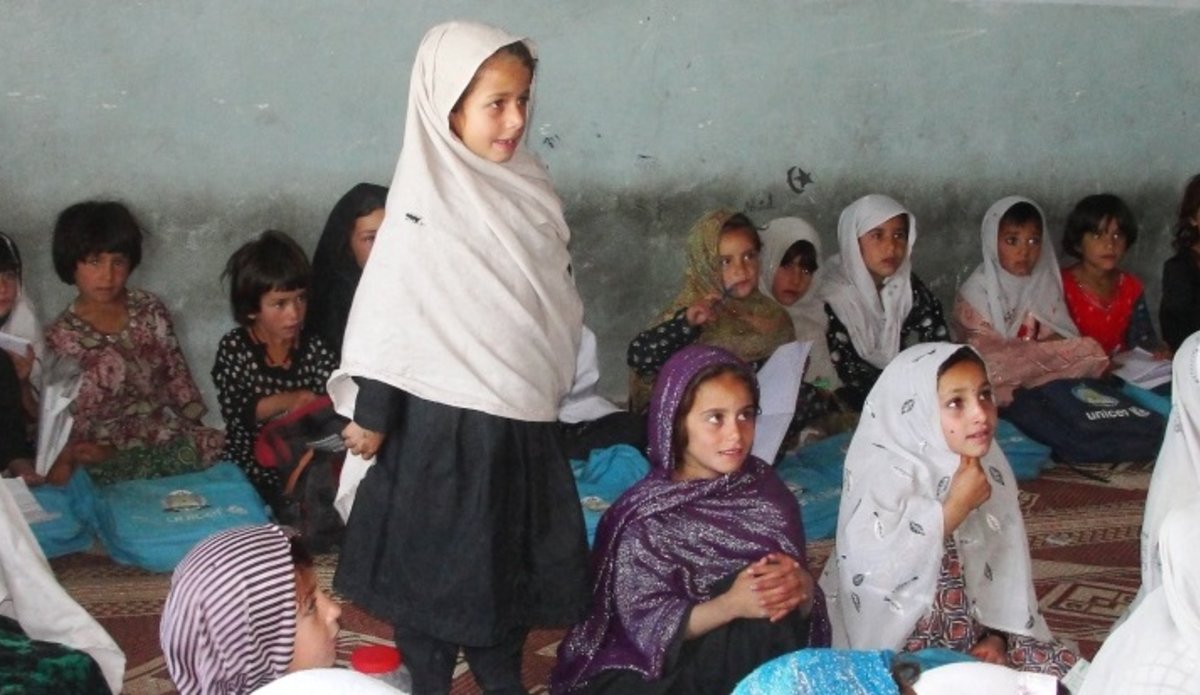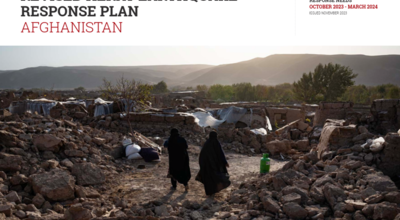UNICEF establishes 52 new community schools in southeastern region
PAKTIKA - Providing children with access to education in remote and conflict-affected areas, the United Nations Children’s Fund (UNICEF) recently completed 52 new community-based schools in Afghanistan’s southeastern province of Paktika.
Bismillah Enayat, a UNICEF programme officer, says that 1,158 girls and 782 boys are now enrolled in the schools. These newly-enrolled pupils add to the previous total of 5,512 students who have been receiving education in the 184 UNICEF community-based schools already running across the province.
Paktika, one of the most remote provinces of Afghanistan, is characterized by insecurity that impedes children from traveling long distances to attend government-run schools. To implement the community-based schools initiative in Paktika, UNICEF officials have worked with the Ministry of Education at the regional and provincial levels, and directly with local community leaders.
In addition to supporting the programme through coordinating partnerships between community leaders and government officials, UNICEF provides the salaries to the schools’ teachers, along with educational materials and tents used as classrooms.
The UNICEF initiative relies on close community partnerships. Local Afghans assist in identifying out-of-school children, especially girls, and introducing them to the remote-schooling programme. UNICEF officials provide teachers with specialized training and guidance.
“In a conservative society like Paktika, religious figures like Mullahs and other community elders play a crucial role in mobilizing the community and encouraging people to establish community-based schools in their district,” said Hazrat Shah, an official working for the Education Department.
UNICEF monitors the progress of students enrolled in community-based schools in all districts. Last year, nearly 2,000 students who passed through the community-based schools programme were integrated into the government’s formal schools.
In addition to this work in Paktika, UNICEF this year established 20 new accelerated-learning courses in the Jani Khail, Yahya Khail, Sharan, Giyan and Sarobi districts of the province for out-of-school children wishing to learn the Afghan primary-school syllabus in three years. Last year, 560 students, both girls and boys, graduated from the programme.
UNICEF started the community-based schools initiative started in 2009 in the southern and eastern regions of the country. The UN agency then expanded the programme to Afghanistan’s central region, where nearly 10,000 students are enrolled in 268 community-based schools.
The Paktika Director of Women’s Affair, Bibi Hawa Khoshiwal, earlier this year indicated that almost 98 percent of girls in the province are not receiving an education. Responding to these and other concerns about girls’ education in the province, the regional office of the United Nations Assistance Mission in Afghanistan (UNAMA) has conducted several awareness-raising workshops to promote girls’ rights to education and to foster and support gender-equality initiatives.
UNAMA is mandated to support the Afghan Government and relevant international and local non-governmental organizations to assist in the full implementation of the fundamental freedoms and human rights provisions of the Afghan Constitution and international treaties to which Afghanistan is a State party, in particular those regarding the full enjoyment by women of their human rights.
 UN
UN








